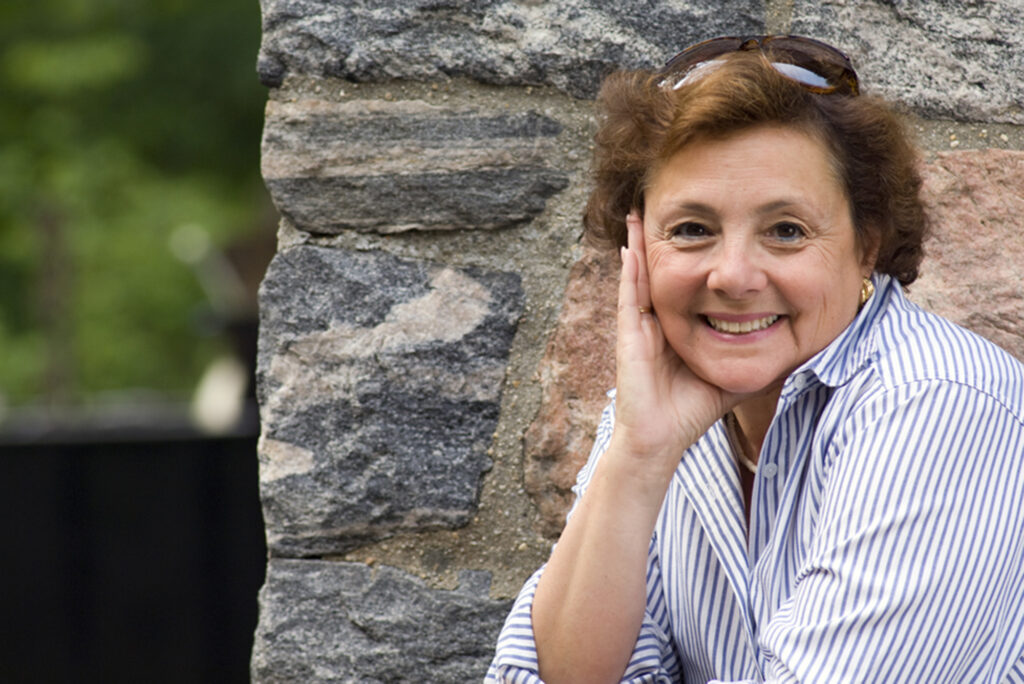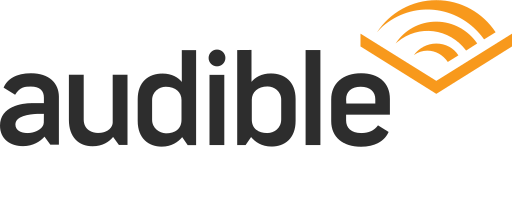Creating Sunnier Days: Sesame Street Writer Emily Perl Kingsley

Emily Perl Kingsley is renowned for her 45-year career as a writer on Sesame Street, essentially from the show’s beginnings. In this episode, Jeana and Ms Kingsley discuss her remarkable contributions to the groundbreaking TV program’s advances in greater inclusion.
Ms. Kingsley is known for advocating for disability awareness and working towards improving the way people with disabilities are portrayed in the media, as well as expanding perceptions of individual potential. Ms. Kingsley is also the author of the inspirational and widely-published poetic essay “Welcome to Holland,” which she reads for us in this podcast episode. Additionally, she is the author of over 20 children’s books, and the many awards for her work include 23 Emmys and numerous nominations, as well as other humanitarian and public service awards.
Jeana Ross
00:00:02 – 00:03:00
Imagination is at the heart of what it means to be a child, and it’s central to what it means to develop to your full potential. Sesame Street changed entertainment, and it improved possibilities and perceptions about early childhood education. Just ask writer Emily Perl Kingsley, whose 45-year career at Sesame Street was all about friendly neighbors and sunny days … sweepin’ the clouds away …
Welcome to “Starting at Zero.” Starting at Zero … imagining a world of high quality education for our youngest citizens. I’m Jeana Ross. As an educator, policymaker, mother, and grandmother, it’s my passion to advocate for the futures of our children.
Today we’ll talk with Emily Perl Kingsley, a writer renowned for her remarkable work on Sesame Street for 45 years, starting in 1970, essentially at the show’s beginnings, Sesame Street was the first television program of its kind, and it revolutionized the concept of what television could accomplish. Sesame Street proved that television could not only entertain, but could be educational as well. To this day, it remains the most influential kids program ever. As a writer on the Sesame Street team, Emily not only helped expand the horizons of what could appear on TV, but also the concept of who. In a way that was unprecedented at the time, Sesame Street always explored greater representation, integrating people of color in its cast, as well as people with disabilities. Emily’s son Jason was born with Down syndrome, and he first appeared on Sesame Street at just 15 months old. And he went on to appear in 55 episodes. And his acting career continued beyond Sesame Street. Emily is also known for advocating for disability awareness and working towards improving the way people with disabilities are portrayed in the media, as well as expanding perceptions of individual potential. And she’s the author of the inspirational and widely published poetic essay “Welcome to Holland.” Emily is also the author of over 20 children’s books, and the many awards for her work include 23 Emmys and numerous nominations, as well as other humanitarian and public service awards.
Hi, Emily. What role do you feel children’s television – in particular Sesame Street – plays in the world of early childhood? And how do you feel it works with or complements the overall goals of a quality early childhood education?
Emily Kingsley
00:03:00 – 00:04:52
Well, it’s been established really hard and strong that an early childhood education is important for all children. The earlier the better. My own son Jason, who was born with Down syndrome, we started his education at 10 days of age and never let up. But there’s also been a study that indicated that kids that watched Sesame Street when they were little did better all the way through high school and into college. You have to remember that when we started, which was in 1970, I started at the very beginning of the show. And at that time, there was very little, if anything, on television for children and certainly not anything that was educational. So when we came along and for a good long time, we were about the only game in town. And I think I’ve heard anecdotally from so many people, you know, “I learned to read from Sesame Street. I learned to count from Sesame Street.” And the fact that we were including curriculum and actual, right-at-you learning stuff was incredibly helpful and important and had wonderful, wonderful results. Now, of course, with the proliferation of stuff on television for kids – not all of which is helpful or educational – It’s a much more complicated scene. If I had my druthers, I would, you know, insist that all kids had to mandate to watch Sesame Street when they were little. I think it should be shown in schools. I think it should be made available to everybody as much as possible. Because I truly believe that the direction and the content were so helpful and so wonderful for kids. I fear that it’s not getting as much coverage or playtime as it used to.
Jeana Ross
00:04:53 – 00:05:29
Well, I know it certainly was at our house and played a big part in my children’s early learning time that we had at home. So, you know, you touched on it a little bit when you were talking about some of the opportunities or shows that are on television that may not be as high quality as Sesame Street. So, you know, in thinking them in those terms, do you feel that the role of public television or television in general has changed over the years? Particularly in the sense that the subject of early childhood education has moved much more into the political spotlight?
Emily Kingsley
00:05:29 – 00:07:01
I’m not sure about children versus political, but I think that … in the beginning, when we were demonstrating that you could teach kids via television, then there was a whole bunch of shows which tried to do that, some of them more successfully than others. One of the reasons that Sesame Street was so successful was because we had a very iron-clad research department. And everything that we did and everything we put on the air had been researched with educators and scientists and so on. So we knew that what we were doing was quality stuff. I’m afraid that there were a lot of shows that went on that tried to do it quickly or on the cheap or seemed to be educational, but might not have been backed up by as much research and hard science as we did. And then, of course, when it became even more and more available to kids, then the entertainment factor, you know, and all of that kind of thing, which didn’t make any pretense to be educational, took up so much of the airwaves that that’s what I fear may have diluted the impact that Sesame Street had in the beginning. I still think it’s wonderful, and I hope to the dickens that kids are still watching it. It’s … what … 53, 54 years old by now and still going strong, but not getting as much press or publicity or airtime as we used to.
Jeana Ross
00:07:01 – 00:07:26
Well, I know that when I had grandchildren come into my life, the first thing I did was pull out the Sesame Street books and things so that we could use those with them, because I certainly kept them and felt like they were valuable. So some of the main focuses or goals that you gravitate towards during your tenure at Sesame Street. Can you speak to those?
Emily Kingsley
00:07:26 – 00:10:03
Well, one of the things that became most important to me personally was the inclusion of kids and adults who had physical, cognitive, or intellectual disabilities. Having a son who has Down syndrome, it was very apparent to me when he was little, the complete absence on television of anybody that had a disability of any kind. It was just a wasteland. There was nothing. When my own son at age 3, started to read and started to put letters together in meaningful ways and make little words and stuff like that. And it was apparent to me that there were no role models. There was nobody to look at, nobody who looked anything like my kid. And when Jason was starting to read at 3, I went to the producers and I asked if we could put him on the show. And we did. We put him on at three years old, doing little reading things, little word exercises, letter sounds and stuff. And I want to tell you that the reception that we got was phenomenal. It was amazing. The letters came pouring in from parents, grateful parents, who were saying, number one, “I never saw any kid who represented my kid on any show ever. And I’m so grateful that you had a kid with Down syndrome on the show.” And secondly, there were parents who were writing saying “I never knew that a kid with down syndrome was capable of this kind of academic work. I’m going to work harder with my kid.” And that triggered me after this response we got about that, that it didn’t have to be only down syndrome. And I started writing segments for kids in wheelchairs and kids with helmets and kids with braces and dealing with some of the questions. And we had Linda Bove on the show, who was deaf, and she became a regular part of the cast. So on the one hand, we were dealing with real hard information. “Linda, how do you know it’s time to get up if you can’t hear your alarm clock?” You know … “how do you know when there’s somebody at your front door if you can’t hear your front doorbell?” I mean, answering kids’ real questions. And that’s one facet of it. The second facet was just to include her as a regular, ordinary member of the community. I thought was so important that she was just a neighbor. She just lived there, and she did a lot of stuff that had nothing to do with her being deaf. She just was there. And the response that we got was absolutely wonderful. And that became kind of a keynote of most of the segments that I wrote for the show from that point on.
Jeana Ross
00:10:03 – 00:10:23
You inspired people who had children with special needs to do more and to be able to think about other ways they might support their children, or greater expectations … do you also think that Sesame Street may have helped some in underrepresented communities feel that their voices might be more welcome?
Emily Kingsley
00:10:23 – 00:12:40
Absolutely, absolutely …. This was part of the original mandate of the show in the first place, when it was first conceived … that the set, for example, the show was placed on an inner city street. You know, it was not in a magical clubhouse or, you know, a fanciful, you know … with unicorns and stuff. This was a real street that disadvantaged and inner city kids could see and relate to. We were, I think, the first integrated, racially and ethnically integrated show, especially for children on television. And this had a huge impact. People of all different ethnicities and getting along and just living in a community together, cooperating and teaching was kind of a revolution in those days. We’re talking about 1970. And I remember in the second season when Sonia Manzano, who played Maria, came onto the cast and she explained her entire childhood, she’d never seen anyone who looked like her on television. She was a Hispanic young woman. And we integrated a lot of Spanish language, Spanish food, Spanish holidays, traditions, and so on. And little by little, we just kept expanding that to try to get the message across that it doesn’t matter what you look like, it’s what kind of a contribution you make to your community and what kind of thing you can contribute to each other. And that was amazingly successful, I believe. I think it’s been followed in, you know … now it’s almost taken for granted that there’s inclusion in all different … I think the people with disabilities are still being left behind in many, many ways, and they’re still low man on the totem pole in many respects, especially in light of the fact that people with disabilities are America’s largest minority. But still, Sesame Street certainly was a model from the beginning, from the first days on to that kind of comfortable inclusion of all different kinds of people.
Jeana Ross
00:12:40 – 00:12:46
Beautiful … it was just beautiful. What were your biggest rewards working on Sesame Street?
Emily Kingsley
00:12:46 – 00:13:37
Well, I mean, personally it was thrilling to see my own words be interpreted and performed by the incredibly inspired cast of actors and puppeteers. That was, you know, hugely rewarding on a personal level. And just the kind of response we got from press and publicity and stuff of the research studies that were done that were showing that what we were doing was making a difference in kids lives. Just fabulous, fabulous. I think in the area of disability, which was one of my prime focuses … just the kind of response that I got from people who I meet or at conferences and stuff like that was so gratifying.
Jeana Ross
00:13:39 – 00:13:46
Well, your essay … “Welcome to Holland.” It’s such a beautiful and powerful piece. Would you share it with our listeners?
Emily Kingsley
00:13:48 – 00:16:54
I have often been asked to describe the experience of what it’s like to have a child with a disability and to try to help people to understand that unique experience. When you’re going to have a baby, it’s sort of like planning a very fabulous vacation trip to Italy. You make a lot of plans and you buy a lot of guidebooks and you plan all the things you’re going to do. You’re going to go see the Colosseum and you’ll see the Michelangelo “David” and you’ll ride on a gondola in Venice and it’s all very exciting. And nine months later, when the time arrives, you pack your little bag and off you go. And the plane lands and the flight attendant comes in and says: Welcome to Holland. Holland? … Holland? You say, What are you talking about? I’m supposed to be in Italy. My plans were to go to Italy. All my life I’ve planned to go to Italy. Well, the problem is there’s been a change in the flight plan and they’ve landed in Holland and that’s where you must stay. So the important thing is that they haven’t taken you to a horrible, disgusting place which is full of pestilence and plague and famine, and they’ve simply taken you to a different place. You have to go out and buy some new guidebooks and learn about this new place and, and you will learn a new language and you’ll meet a whole bunch of new people whom you would never have met otherwise. It’s just a different place. Holland is a little slower pace than Italy. It’s a little less flashy than Italy. But after you’ve been there for a while and you catch your breath and you look around and you read your new guidebooks, you come to realize that Holland has windmills … and Holland has tulips. You even see a Rembrandt every once in a while. But everyone you know is busy coming and going to Italy. And for the rest of your life, you will say, Yeah, that’s where I was supposed to go. That’s what I had planned. And the pain of that loss never, ever, ever, ever goes away. Because the pain of that loss, of that original plan and that original dream is a very significant loss. But if you’re so hung up, and you’re busy mourning the fact that you didn’t get to go to Italy, you may never be available to enjoy the rather lovely and special things there are about Holland.
Jeana Ross
00:17:00 – 00:17:06
How do you think the message in “Welcome to Holland” can pertain to more than just special needs families?
Emily Kingsley
00:17:06 – 00:18:58
It turns out that when I first thought up “Welcome to Holland” … in my life and in my experience, I was relating to the experience of raising a child with Down syndrome. Now, as it turns out in the intervening years, that Welcome to Holland can be applied to almost any change of plans, anything that you didn’t expect coming along that you have to adjust to. This little piece, this little essay has been reprinted in so many journals for so many other disparate interest groups … The Craniofacial Anomalies Society, Rett Syndrome, Cerebral Palsy, you name it. A lot of organizations have adopted this and reprinted it and used it as a template for adjusting to a situation that you didn’t anticipate that you might have been afraid of or you might have had a negative feeling about in the beginning and that you’ve come to live with and perhaps even appreciate. So it’s been used all around, it’s just taken off, it’s gone all around the world, and it’s been in many different languages and in loads and loads of. And Dear Abby used to print it once a year and that sort of thing, which is just astonishing and terribly flattering and wonderful to me, that it has had the kind of impact that it has. It’s so gratifying. There are some groups who feel that it doesn’t apply to them as well. I had some negative feedback from various autism groups. I wasn’t writing about autism in those days. (We hardly knew what autism was.) And it does seem to work for lots and lots of different groups of people. And I’m very. I’m humbled and gratified by that.
Jeana Ross
00:18:58 – 00:19:23
Well, I was at a dinner just last week and I mentioned to a group of retired teachers that we were going to have this interview, and one of them said, Oh! … and she almost quoted verbatim the “Holland” essay. And I thought how important that was to have that retired teacher and that essay have meant so much to her over her time working with children.
Emily Kingsley
00:19:24 – 00:19:25
That’s fantastic.
Jeana Ross
00:19:25 – 00:19:56
Well, I know that not only did she use it to inspire herself, but I know she shared it with parents that may not have even known how to get it or even know it existed and what it must have meant to them as well. So thank you so much for putting that perspective out for those that maybe needed a little extra support or encouragement with the situation they found themselves in. And what have been your biggest rewards in your career outside of Sesame Street, including your work in public service and philanthropy?
Emily Kingsley
00:19:56 – 00:21:53
I’ve done a tremendous amount of public speaking in the area of disability awareness. I’ve done, I don’t know, hundreds of personal appearances at schools, medical schools, nursing schools, universities, and so on, just to make people more aware, number one, of the potential of people with disabilities, that each person needs to be considered as an individual with individual potential and the entitlement of people to be included just as ordinary human beings. There are so many old wives tales and misconceptions and prejudices and bigotries about people with different kinds of disabilities, and those need to be dealt with and faced and erased. Because, I mean, even though people with varying disabilities have particular challenges, it doesn’t mean that they don’t have areas of competency and capability. And in any case, any child or any person is entitled to the opportunity to develop to his or her best potential. If any child, no matter what the label or what the condition is, is given the opportunity to best develop, I think that it would be a much better world if people were not judged on the name of their disability or the name of their race or ethnicity or everything. You know, if that kind of thing were eliminated, it would be much better for everybody. People used to say that I would stop people at a street corner if I could buttonhole them and talk to them about these subjects. I’ll talk to anybody, and I still love to do it. I’ll go and talk to any group or school or organization. That’s a tremendous area of gratification for me.
Jeana Ross
00:21:53 – 00:22:04
And as a parent of a child with special needs, what do you see as the challenges of families with children with special needs today in relation to early childhood education?
Emily Kingsley
00:22:04 – 00:24:01
The challenges continue, unfortunately, and it’s different in different places. Some places are more enlightened than others. And there’s much more public awareness than there used to be. But I think it’s still very difficult to have the time, the resources and the orientation to give each child the opportunities to maximize whatever their potential is. It seems to me that if a child works hard for a long time and finally learns to tie his shoes, that’s wonderful. Not every kid is going to be academic. Not every kid is going to … they have college courses now for young people with all sorts of different disabilities, certainly a physical disability … but they’re developing courses in colleges for people with mild learning disabilities and cognitive disabilities. And that’s a huge step forward. A lot of these kids would have been denied opportunities just based on how they looked or what their label was. I think a lot of progress has been made, but an awful lot of progress is still needed. There are a lot of kids, for example, who could grow up and become adults and live in the community so long as they had the supports that they needed. And nobody should be denied those opportunities because they need a little help. My son lives in a small group home in a suburban town. They have part time supervision with the kinds of things that they need help with. He and his roommates, they’re not great at cooking dinners, for example, and so they get some help with that. But they’re able to walk into town and negotiate, you know, buying stuff and going to the movies and holding down jobs and can be really participating members of society. Everybody should be looked at in terms of whatever their potential is to lead a full life.
Jeana Ross
00:24:02 – 00:24:06
Who is your favorite Sesame Street character and why?
Emily Kingsley
00:24:08 – 00:24:52
It’s very hard and I don’t want to hurt the feelings of any of the other characters … but I love Grover. Grover is so funny and is so beautifully portrayed and his thinking is just so unique and wonderful. And it was wonderful fun to write for Telly Monster. Telly Monster was just such a great character to write for, like a wonderful family. And everybody was great fun. It was a thrilling experience to be part of the staff of Sesame Street and I was there for 45 years, so that was a good long time. And it was a joy. It was a joy from beginning to end.
Jeana Ross
00:24:52 – 00:25:00
Well, thank you so much for joining me today. And do you have any calls to action that you would like to share with our community?
Emily Kingsley
00:25:01 – 00:26:03
I encourage parents to get involved with parent support groups or advocacy groups. It can be such a lonely experience until you find other people who are sharing your experiences and together. When people get together, they can make differences. As I said earlier, the population of people in the United States who have disability at all is the largest minority group in America. And unfortunately, we are split up into a whole bunch of little disparate groups, people with sensory disabilities, with cognitive disabilities, with physical disabilities. If we all got together and spoke with one voice, we could make anything happen in this country that we wanted to. We could affect legislation, we could affect funding, we could do anything. But we have to speak with one voice and get together. So I encourage parents to share with each other and use whatever energy they have to speak up and speak up for the rights of their kids.
Jeana Ross
00:26:03 – 00:26:06
Can you let our listeners know how they can connect with you?
Emily Kingsley
00:26:06 – 00:26:29
I have a website: www.emilyperlkingsley.com – there’s no “a” in the Perl (“p-e-r-l”) … emilyperlkingsley.com, and you can see a whole bunch of pictures of me and my son Jason, and also me and a bunch of Muppets! So I encourage people to visit the website if they would like to, or be in touch with me.
Jeana Ross
00:26:30 – 00:27:47
Again, thank you, Emily Perl Kingsley. “Starting at Zero” …. Imagining a world of high quality care, education and success for our youngest citizens. Please visit us at www.startingeropodcast.com, you can check out more episodes and also subscribe. On the website, you’ll find links mentioned in the episode, along with transcripts, show notes, as well as exclusive material shared by today’s guest. You’ll also find the video version of today’s episode. That’s startingatzero podcast.com. If you found our insights on early childhood education valuable, we’d be thrilled if you could take a moment to leave a review. Your feedback not only supports our podcast, but also helps us spread the word about the importance of early education. Connect with me on Twitter and Instagram at startingatzero and Saul Zaentz Charitable and I’m Jeana Ross on LinkedIn. I cannot wait to share our next conversation with you and imagine a future where every child finds early success.
Learn More About Our Work
Feedback & Contact
Copyright © 2024. Starting at Zero Podcast and the Saul Zaentz Charitable Foundation™. All Rights Reserved. Site Design: Chair 8 Design.





